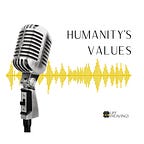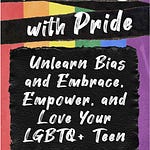As noted by Greg Lukianoff and Jonathan Haidt in their book "The Coddling of the American Mind", there is an untruth of "what doesn't kill you makes you weaker." To that, we will instead embrace a deeper appreciation for how our brain/body system works within experience to prepare us for an uncertain future. Ultimately we can learn to accept and even desire to build a capacity for seeing errors and mistakes and consequences as spaces for growth.
The Untruths
What doesn’t kill you makes you weaker – leads to self-identifying through victimhood
Always trust your feelings
Life is a battle between good people and evil people
Our brains are biological predictive devices, not truth-tellers.
The premise of the standard regulatory model, “homeostasis”, is flawed: the goal of regulation is not to preserve constancy of the internal milieu. Rather, it is to continually adjust the milieu to promote survival and reproduction. Regulatory mechanisms need to be efficient, but homeostasis (error-correction by feedback) is inherently inefficient. Thus, although feedbacks are certainly ubiquitous, they could not possibly serve as the primary regulatory mechanism.
Peter Sterling, "Allostasis: A model of predictive regulation"
Every Narrative/Story we have hides as much as it reveals.
People who possess the truth are perceptive, insightful, observant, illuminated, enlightened, and visionary; by contrast, the ignorant are in the dark. When we comprehend something, we say I see. And we say, too, that the scales have fallen from our eyes; that once we were blind, but now we see. This link between seeing and knowing is not just metaphorical. For the most part, we accept as true anything that we see with our own eyes, or register with any of our other senses.
Schulz, Kathryn. Being Wrong: Adventures in the Margin of Error (p. 54).
Consequences are part of living in a reality that is not beholden to our desires.
Our brains piece together information fragments in ways that make sense to us and which can therefore feel like real memories. This is not a conscious decision by the ‘rememberer’, rather something that happens automatically. Two of the main processes during which this occurs are known as confabulation and source confusion.
Shaw, Julia. The Memory Illusion . Random House.
Consequences are a source for expanding perspective.
Genuine self-knowledge is, no doubt, exceptionally difficult to attain, and the truth about what we are may certainly be distressing. In our efforts to conduct our lives successfully, however, a readiness to face disturbing facts about ourselves may be an even more critical asset than a competent understanding merely of what we are up against in the outside world.
Frankfurt, Harry G.. On Truth (pp. 58-59). Knopf Doubleday Publishing Group.











